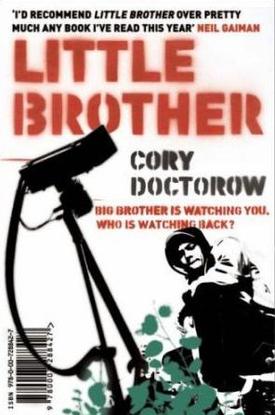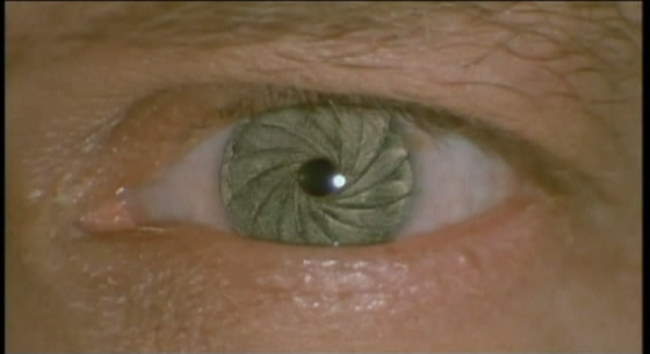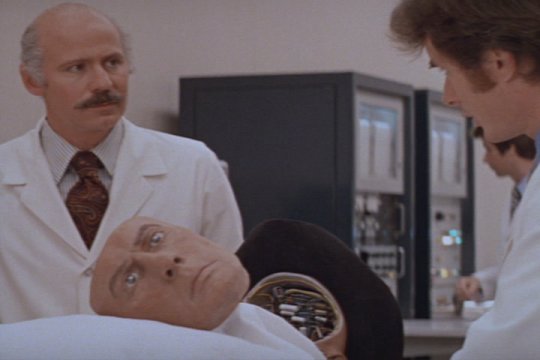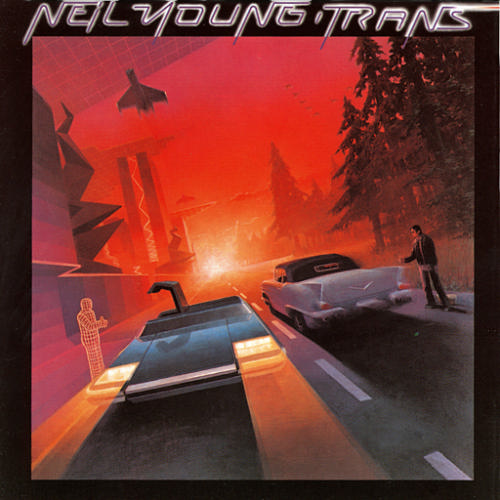November 24, 2008
Little Brother
Review By: Mr. Roboto
Author: Cory Doctorow
Year: 2008
Category: Cyberpunk Books
Available for download or read it online.
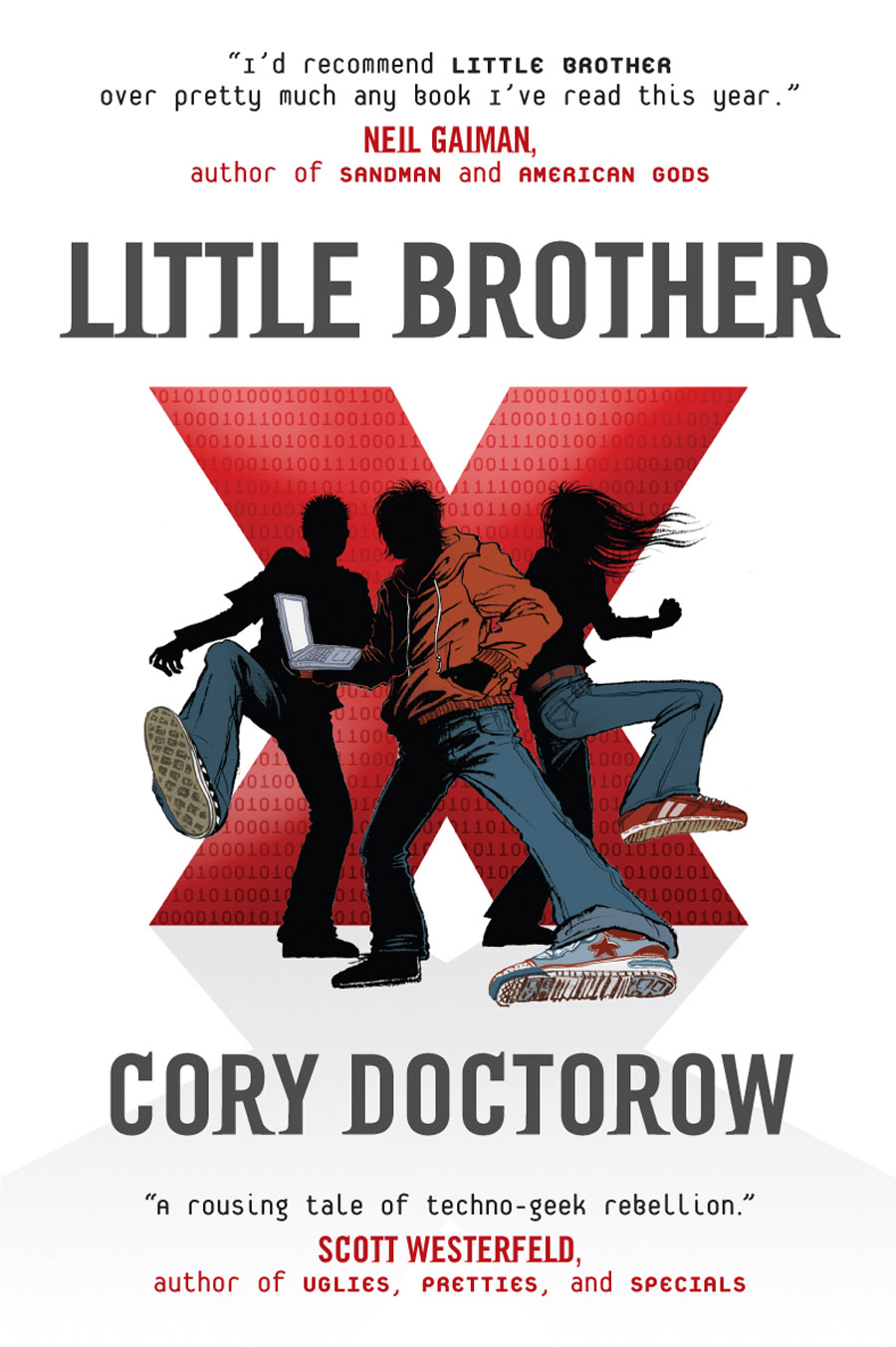
Among the latest in CP. In my last book review (The Shockwave Rider), I covered what is undoubtedly THEE prototype cyberpunk work. Now I give you a recent work from one of Boing Boing’s co-editors, Cory Doctorow, as he tells the story of a tech-savvy teen’s battle with Big Brother in a post 9/11 America. Though targeted to a younger audience, old farts out there should give it read as well.
Synopsis. The story is told through the eyes of Marcus Yallow, aka “w1n5t0n,” a San Francisco gamer who ditches school with his friends to participate in an alternate reality game. Things go bad as a terrorist attack mobilizes the DHS, who kidnap Marcus and company and threaten to “make them disappear” if they tell anyone about their captivity and torture. When an injured friend isn’t released, Marcus wages a personal war against the DHS, who have turned the Bay Area into a police state, by using the various technologies available such as Linux for the Xbox and trusted networking.
A Call To Action. A brief essay from Doctorow about his book shows that Little Brother isn’t just a novel written for entertainment; There’s a definite purpose for the book’s existence:
How do kids figure out which search-engine results to trust? What happens to their Facebook disclosures? How can they tell whether a camera, ID check, or rule is making them safer or less safe? In the absence of the right critical literacy tools, they’ll never know how to read a Wikipedia article so that they can tell if it’s credible. They’ll never know how to keep from ruining their adulthood with the videos they post as a teenager, and they’ll never know when the government is making them safer or less safe.
…
The difference between freedom and totalitarianism comes down to this: do our machines serve us, or control us? We live in the technological age that puts all other technological ages to shame. We are literally covered in technology, it rides in our pockets, pressed to our skin, in our ears, sometimes even implanted in our bodies. If these devices treat us as masters, then there is no limit to what we can achieve. But if they treat us as suspects, then we are doomed, for the jailers have us in a grip that is tighter than any authoritarian fantasy of the Inquisition.
The book was intended to get the youngsters to thinking about their security and privacy in a tech-saturated world of paranoia, and to have them and their parental/guardian/mentor units discuss the point of how to better secure liberty and freedom on this prison planet.
Conclusion. If you or someone you know is old enough to use technology, or needs to know about the consequences of its usage, this book is a necessary read. With the holidays coming up, this book would be an excellent gift for the hacker, gamer, or net surfer in your tribe. It just might open your eyes to the eyes of Big Brother.

